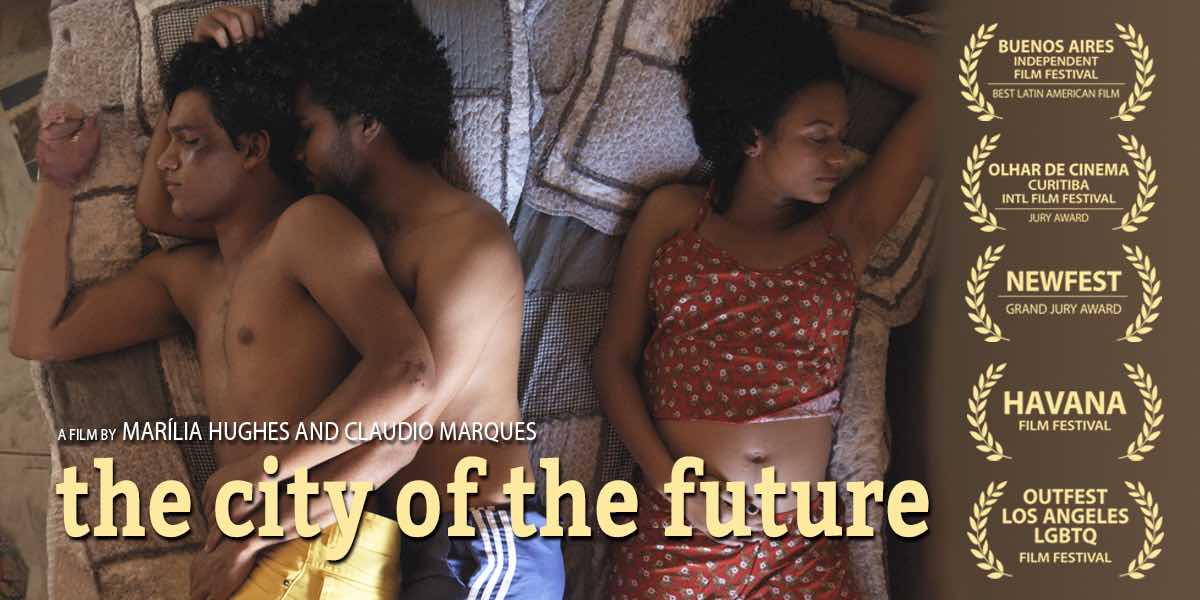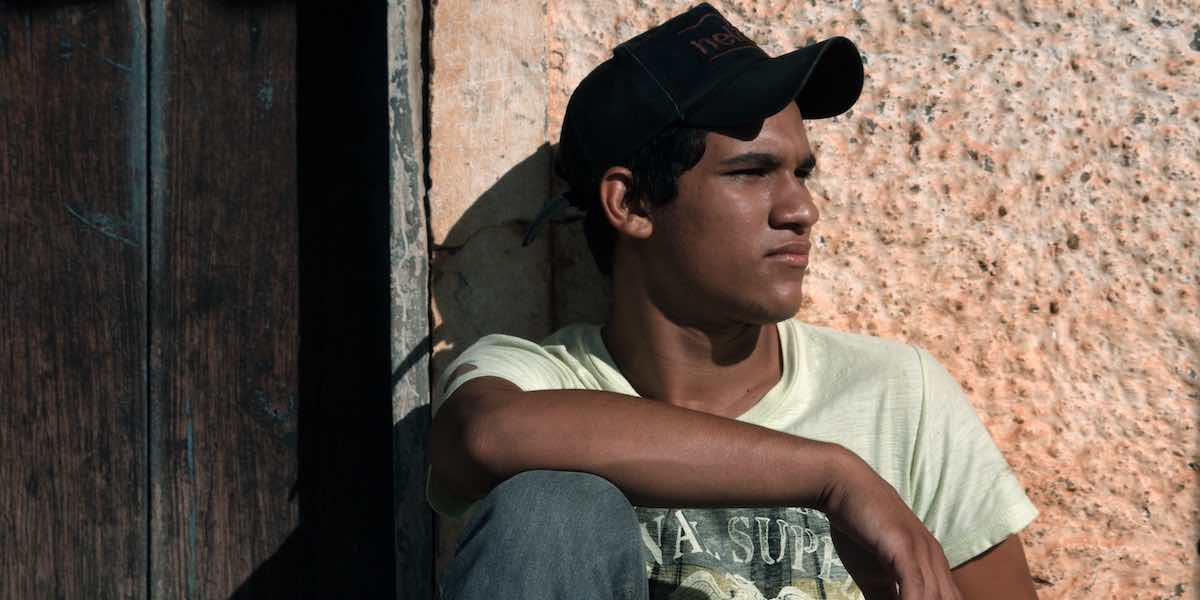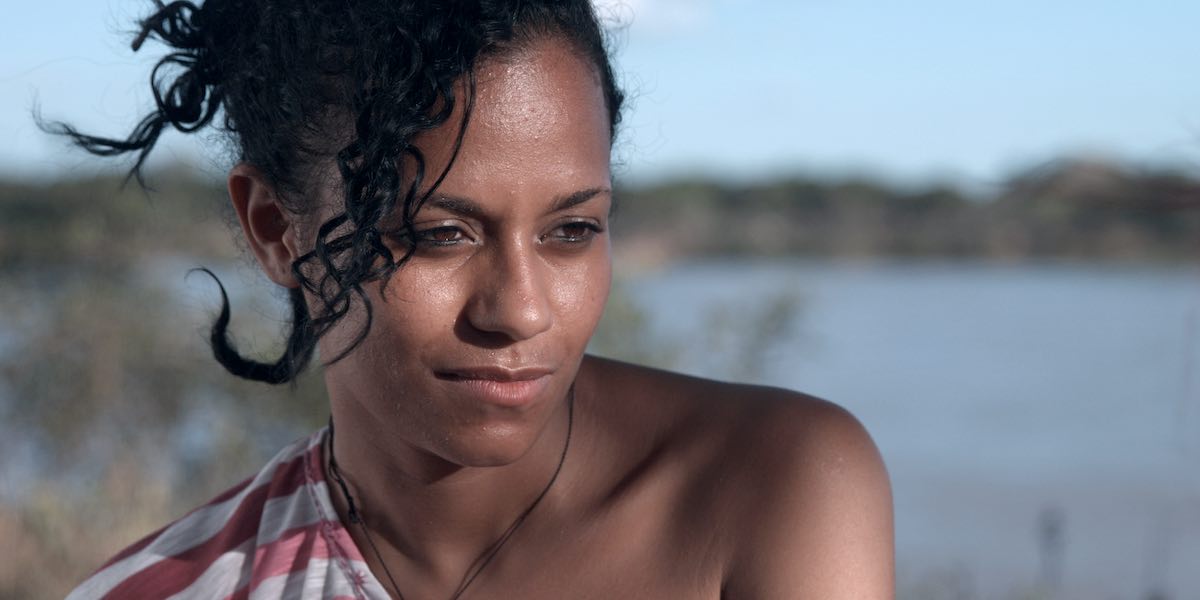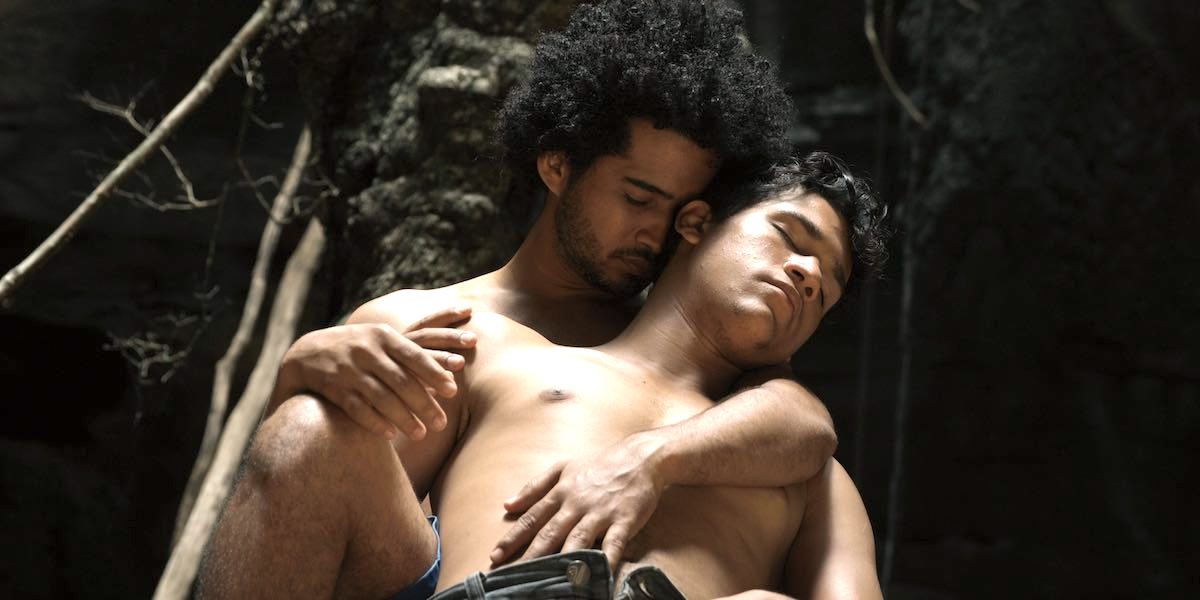Filmmakers may be available for a Q&A via Skype. Speaker fee: $300. Inquire at FILMCLUB@PRAGDA.COM.
In Serra do Ramalho, Brazil, young teacher Milla finds herself pregnant by her colleague Gilmar. Gilmar is in a relationship with Igor, but Milla asserts that the baby will belong to all three of them. Despite some initial conflict between the three, and in defiance of their community’s reaction, they form an unconventional but remarkably uncomplicated family. Billed as the ‘city of the future,’ Serra do Ramalho was constructed in the 1970s in order to rehouse thousands of citizens that had been forcefully relocated. The setting becomes an important backdrop for this elegant, gentle film which is full of hope for a new generation building their own family of the future.
Directors Cláudio Marques and Marília Hughes Guerreiro have boldly collaborated on this beautiful naturalistic film that shuns convention, embracing love in all its dazzling iterations.








